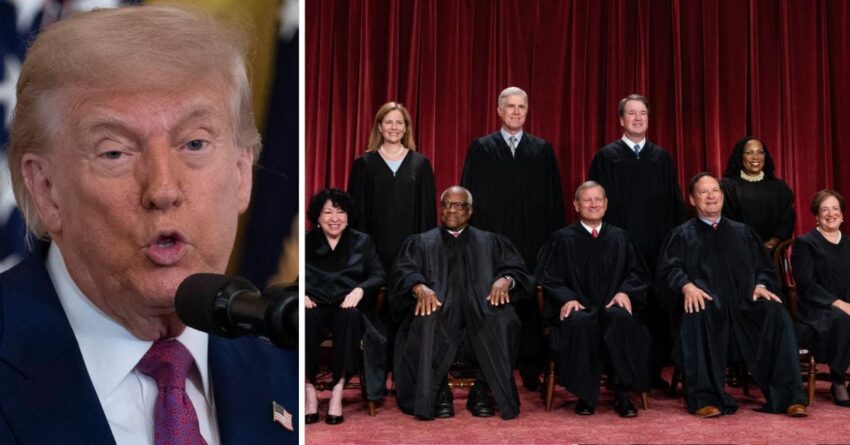The Supreme Court has decided not to expedite a legal challenge concerning tariffs imposed by President Donald Trump.
This ruling has left many companies, particularly those in the toy industry, bracing for continued uncertainty amidst a turbulent trade landscape.
Trump’s Tariffs

The legal ramifications of this decision extend far beyond the courtrooms. Trump’s contentious tariffs, first announced in April during the so-called “Liberation Day,” were designed to alter the global trading system in favor of the United States. His ambitious agenda, however, quickly spiraled into chaos, triggering market instability and discontent among U.S. trading partners.
The announcement was met with resistance from nearly every affected country, each of which confronted the economic ramifications as discussions over trade policy intensified.
Despite the shift in sentiment, Trump initially appeared undeterred. He momentarily backtracked on his demands when countries began reaching out for negotiations, resulting in a dynamic and unpredictable tariff landscape.
In a cyclical twist, the U.S. Court of International Trade effectively halted the legality of the tariffs, a move that provoked an immediate appeal from the Trump administration.
Supreme Court’s Decision

As reported, Chicago-based toy companies, led by Learning Resources Inc., emerged as key players in this legal saga. Initially, they found an ally in the lower courts, winning an early victory when they argued that Trump’s use of emergency powers to impose tariffs was an overreach that bypassed Congressional authority. Yet, in a classic example of legal tug-of-war, the tariffs remain firmly in place as appeals unfold.
To add to the stakes, Learning Resources’ CEO, Rick Woldenberg, expressed the mounting pressures that tariffs have inflicted on businesses.
“Prices are rising, and manufacturers absolutely do not have a choice,” he told the Associated Press. His commentary encapsulated the palpable sense of dread lingering over many companies grappling with the uncertainty provoked by the tariffs.
The Supreme Court’s Swift Resolution

In light of these developments, companies sought to cut through an increasingly tangled legal web by petitioning the Supreme Court for a swift resolution regarding the tariff dilemma. However, the high court’s decision not to fast-track the case signals a delay that many had hoped to avoid.
As the ruling stands, the lower courts will now have the opportunity to navigate the complex legal landscape before proceeding any further.
Trade Policy

The White House, undeterred by the ruling, continues to assert the legitimacy of Trump’s tariff strategy.
Spokesperson Kush Desai emphasized this point, stating, “The Trump administration is legally using the powers granted to the executive branch by the Constitution and Congress to address our country’s national emergencies of persistent goods trade deficits and drug trafficking.” His remarks underscore the administration’s unwavering commitment to its approach, even amid a complex web of legal scrutiny.
The debate surrounding trade policy has broader implications for the American economy, as the tariffs imposed under Trump’s administration affect a wide range of industries, complicating a national economic landscape that has already endured its fair share of disruption during the COVID-19 pandemic.
Industries reliant on global supply chains face cascading consequences from increased import costs.
The post Supreme Court Hands Trump Big Win on Tariffs appeared first on Knewz.
Click this link for the original source of this article.
Author: Joshua Wilburn
This content is courtesy of, and owned and copyrighted by, https://knewz.com and its author. This content is made available by use of the public RSS feed offered by the host site and is used for educational purposes only. If you are the author or represent the host site and would like this content removed now and in the future, please contact USSANews.com using the email address in the Contact page found in the website menu.








